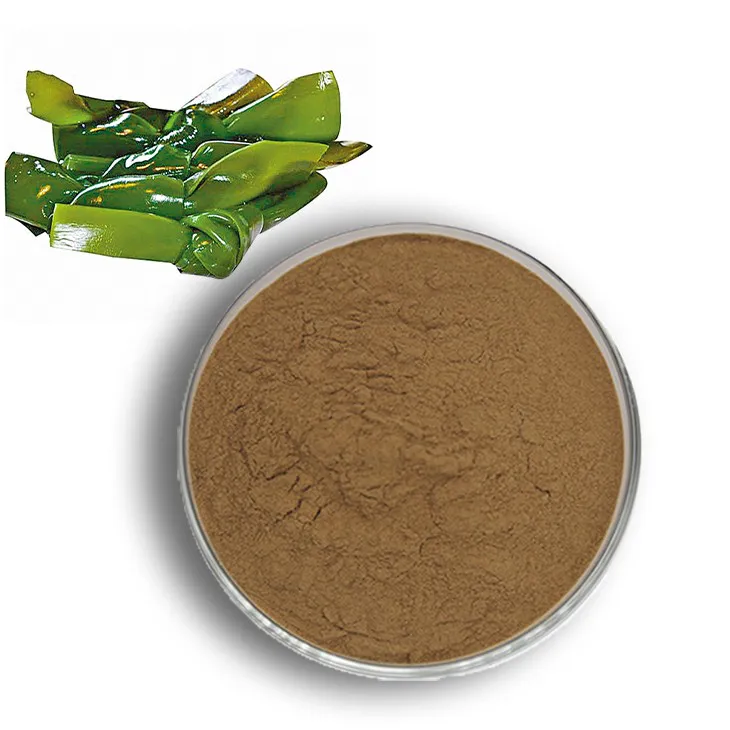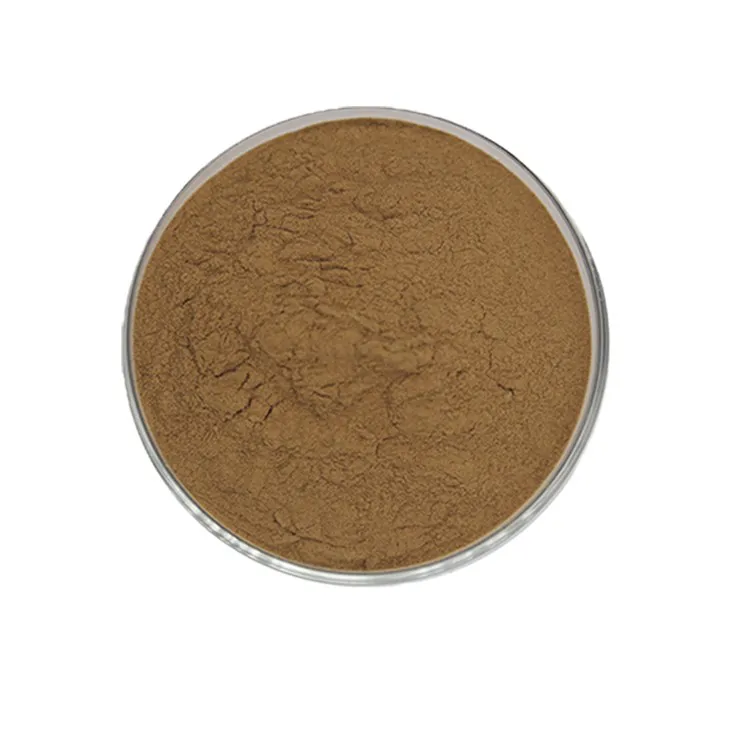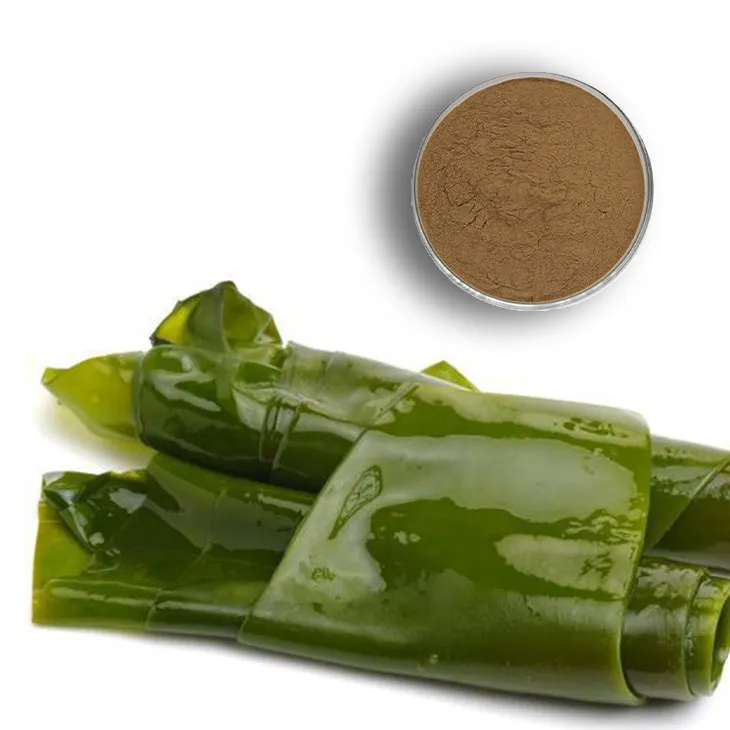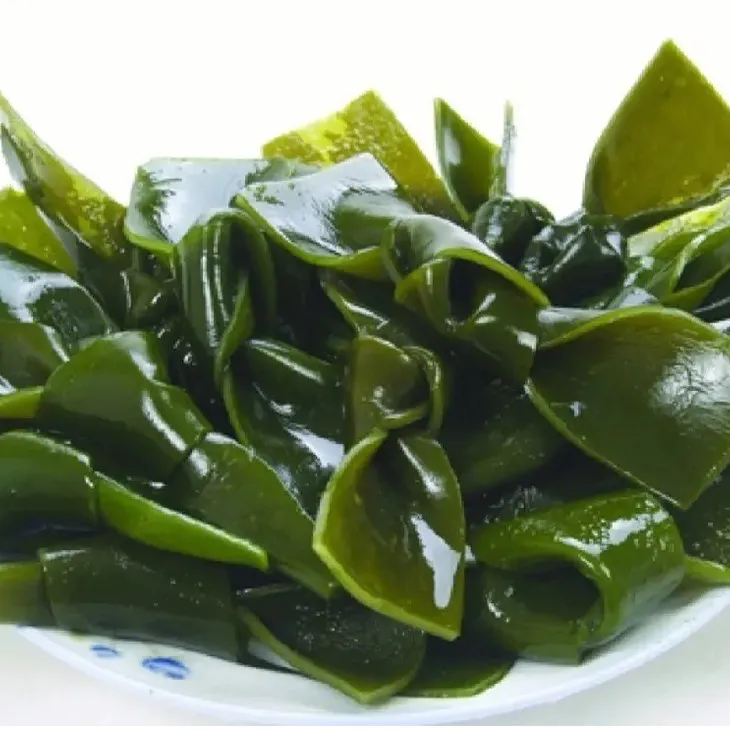- 0086-571-85302990
- sales@greenskybio.com
5 amazing things made from kelp extract powder.
2024-11-13

Introduction
Kelp, a type of large brown seaweed, has been recognized as a valuable marine resource for centuries. Kelp powder, which is derived from kelp, is rich in vitamins, minerals, and other beneficial compounds. In recent years, scientists and innovators have discovered numerous amazing applications for kelp powder. This article will explore five of these remarkable uses: animal feed, building materials, cosmeceuticals, natural adhesives, and plant - based plastics.

1. Animal Feed for Improved Livestock Health
Kelp powder in animal feed has been shown to have several positive effects on livestock health.
Nutritional Benefits
Kelp is a natural source of many essential nutrients. It contains vitamins such as vitamin A, vitamin C, and vitamin E, which are important for the overall health and immune function of animals. Additionally, kelp powder is rich in minerals like iodine, calcium, and magnesium. Iodine, for example, is crucial for proper thyroid function in animals, which in turn affects their metabolism and growth. Calcium is essential for strong bones and teeth, while magnesium is involved in various physiological processes, including muscle and nerve function.
Improved Digestion
The fiber content in kelp powder can also contribute to improved digestion in livestock. It helps to regulate the gut microbiota, promoting the growth of beneficial bacteria in the digestive tract. This can lead to better nutrient absorption and a reduced risk of digestive disorders such as diarrhea. For example, in dairy cows, a diet supplemented with kelp powder has been shown to increase milk production, possibly due to improved digestion and nutrient utilization.
Enhanced Immune System
The various bioactive compounds present in kelp powder, such as polysaccharides and antioxidants, can boost the immune system of animals. A stronger immune system means that livestock are better able to resist diseases and infections, reducing the need for antibiotics and other medications. This is not only beneficial for the animals' well - being but also for the quality and safety of the products derived from them, such as meat, milk, and eggs.

2. Energy - Saving Building Materials with Good Insulation Properties
Kelp powder has emerged as a promising ingredient in the development of energy - saving building materials.
Insulation Mechanism
Kelp contains a high proportion of cellulose, which gives it natural insulating properties. When processed into powder and incorporated into building materials, such as insulation boards or wall panels, it can help to reduce heat transfer. The structure of kelp - based materials allows them to trap air, creating a layer of insulation. This is similar to how traditional insulation materials like fiberglass work, but kelp - based materials may offer additional advantages.
Environmental Benefits
One of the major benefits of using kelp powder in building materials is its environmental friendliness. Kelp is a renewable resource, and its cultivation can have a positive impact on the marine ecosystem. Compared to some synthetic insulation materials, kelp - based building materials are biodegradable, which means they will break down over time without leaving a long - lasting environmental footprint. Additionally, the production of kelp - based materials may require less energy compared to traditional building materials, further contributing to their energy - saving potential.
Strength and Durability
Research has also shown that kelp - based building materials can exhibit good strength and durability. By combining kelp powder with other natural or synthetic binders, it is possible to create materials that can withstand the rigors of construction and use. For example, in some experimental studies, kelp - based composites have been able to support significant loads without cracking or breaking, making them suitable for use in various building applications.

3. Cosmeceuticals for Skin Health
Kelp powder is finding increasing use in the field of cosmeceuticals, which combines the benefits of cosmetics and pharmaceuticals for skin health.
Nutrients for the Skin
The vitamins and minerals in kelp powder are highly beneficial for the skin. Vitamin C, for example, is an antioxidant that can help to protect the skin from damage caused by free radicals. Free radicals are unstable molecules that can damage skin cells, leading to premature aging, wrinkles, and other skin problems. Vitamin E in kelp powder also has antioxidant properties and can help to moisturize the skin, keeping it soft and supple. Minerals such as zinc and selenium in kelp are important for maintaining healthy skin as well. Zinc is involved in the regulation of sebum production, which can help to prevent acne, while selenium has antioxidant and anti - inflammatory properties that can soothe irritated skin.
Anti - Inflammatory and Anti - Aging Effects
The polysaccharides present in kelp powder have been shown to have anti - inflammatory properties. Inflammation in the skin can be caused by various factors, such as environmental pollutants, UV radiation, and allergens. By reducing inflammation, kelp - based cosmeceuticals can help to improve the appearance of the skin, reducing redness and puffiness. Additionally, the antioxidants in kelp powder can help to combat the signs of aging. They can stimulate collagen production, which is essential for maintaining the elasticity and firmness of the skin. As a result, using products containing kelp powder may help to reduce the appearance of fine lines and wrinkles.
Moisturizing and Hydrating
Kelp powder can also act as a natural moisturizer. It has the ability to retain moisture, which is crucial for keeping the skin hydrated. Hydrated skin looks healthier and more radiant. When used in cosmeceutical products such as creams and lotions, kelp powder can help to prevent dryness and flakiness, leaving the skin feeling smooth and refreshed.

4. Natural Adhesives with Strong Bonding Capabilities
Kelp powder has the potential to be used in the production of natural adhesives.
Adhesive Properties
The unique chemical composition of kelp powder gives it strong adhesive properties. It contains compounds such as alginates, which can form gels when in contact with certain substances. These gels can act as effective adhesives, bonding different materials together. For example, in some laboratory tests, kelp - based adhesives have been able to bond wood, paper, and even some plastics with a relatively high degree of strength. The adhesive strength of kelp - based adhesives can be further enhanced by adjusting the formulation, such as adding other natural or synthetic additives.
Biodegradability
One of the key advantages of kelp - based adhesives over traditional synthetic adhesives is their biodegradability. Synthetic adhesives are often difficult to break down, and they can accumulate in the environment, causing pollution. In contrast, kelp - based adhesives will degrade over time, reducing their environmental impact. This makes them a more sustainable choice for applications where the adhesive is not required to have a long - term lifespan, such as in some packaging or disposable product applications.
Versatility
Kelp - based adhesives can also be made to be versatile. They can be formulated to have different viscosities and drying times, depending on the specific application requirements. For example, for applications where a quick - drying adhesive is needed, such as in some assembly - line manufacturing processes, the formulation of the kelp - based adhesive can be adjusted to achieve a faster drying time. On the other hand, for applications where a more viscous adhesive is required, such as in some construction or woodworking applications, the kelp - based adhesive can be made more viscous.
5. Plant - Based Plastics as Biodegradable Alternatives
Kelp powder is being explored as a key ingredient in the development of plant - based plastics.
Biodegradability
Traditional plastics are a major environmental concern due to their non - biodegradability. They can take hundreds of years to break down in the environment, causing pollution and harm to wildlife. Plant - based plastics made with kelp powder, on the other hand, are biodegradable. Kelp contains polysaccharides and other compounds that can be used to create a plastic - like material that will break down naturally over time. This makes them a more sustainable alternative to traditional plastics, especially for single - use items such as packaging and disposable cutlery.
Renewable Source
Kelp is a renewable resource, which is another significant advantage of using it in the production of plant - based plastics. It can be cultivated in large quantities without depleting non - renewable resources. In contrast, traditional plastics are typically made from fossil fuels, which are finite resources. By using kelp powder in plastic production, we can reduce our reliance on fossil fuels and move towards a more sustainable future.
Mechanical Properties
Research is also focused on improving the mechanical properties of kelp - based plastics. While they may not have the same strength and durability as some traditional plastics initially, efforts are being made to enhance these properties. By adding other natural or synthetic fillers and modifiers, it is possible to create kelp - based plastics that can meet the requirements for various applications. For example, in some cases, kelp - based plastics can be made strong enough to be used for food packaging, where they need to protect the contents while also being biodegradable.
Conclusion
Kelp powder is truly a remarkable substance with a wide range of potential applications. From improving livestock health through animal feed to creating energy - saving building materials, from enhancing skin health in cosmeceuticals to serving as a natural adhesive and a key ingredient in plant - based plastics, kelp powder offers many benefits. As research continues, we can expect to see even more innovative uses of this valuable marine resource in the future, further contributing to a more sustainable and environmentally friendly world.
FAQ:
What are the main nutrients in kelp powder?
Kelp powder is rich in vitamins such as vitamin A, vitamin C, and vitamin E, as well as minerals like iodine, potassium, and calcium. These nutrients contribute to its various applications in different products.
How does kelp - powder - made animal feed improve livestock health?
The nutrients in kelp powder, such as vitamins and minerals, can enhance the immune system of livestock. It may also improve digestion and provide essential elements for growth, leading to better overall health and productivity.
What makes kelp - powder - based building materials energy - saving?
Kelp - powder - based building materials have good insulation properties. They can help regulate temperature, reducing the need for excessive heating or cooling, thus saving energy in buildings.
How do cosmeceuticals made from kelp powder benefit skin health?
Kelp powder contains antioxidants and various nutrients that can nourish the skin. It may help in reducing inflammation, improving skin elasticity, and protecting the skin from environmental damage in cosmeceutical products.
Why are kelp - powder - based natural adhesives strongly bonding?
The chemical composition of kelp powder may contain substances that can form strong bonds. These substances interact with surfaces to create a reliable and durable adhesive effect.
Related literature
- The Nutritional and Functional Properties of Kelp Extracts"
- "Kelp - Derived Materials in Sustainable Product Development"
- "Applications of Kelp in the Cosmeceutical Industry"
- ▶ Hesperidin
- ▶ Citrus Bioflavonoids
- ▶ Plant Extract
- ▶ lycopene
- ▶ Diosmin
- ▶ Grape seed extract
- ▶ Sea buckthorn Juice Powder
- ▶ Fruit Juice Powder
- ▶ Hops Extract
- ▶ Artichoke Extract
- ▶ Mushroom extract
- ▶ Astaxanthin
- ▶ Green Tea Extract
- ▶ Curcumin
- ▶ Horse Chestnut Extract
- ▶ Other Product
- ▶ Boswellia Serrata Extract
- ▶ Resveratrol
- ▶ Marigold Extract
- ▶ Grape Leaf Extract
- ▶ New Product
- ▶ Aminolevulinic acid
- ▶ Cranberry Extract
- ▶ Red Yeast Rice
- ▶ Red Wine Extract
-
Longan Extract
2024-11-13
-
Angelica sinensis extract
2024-11-13
-
Garcinia Cambogia Extract
2024-11-13
-
Beta Carotene
2024-11-13
-
Tongkat Ali Extract Powder
2024-11-13
-
Hawthorn powder
2024-11-13
-
Coix Seed Extract
2024-11-13
-
Alfalfa Meal
2024-11-13
-
Nettle Root Extract
2024-11-13
-
Plantain extract
2024-11-13





















